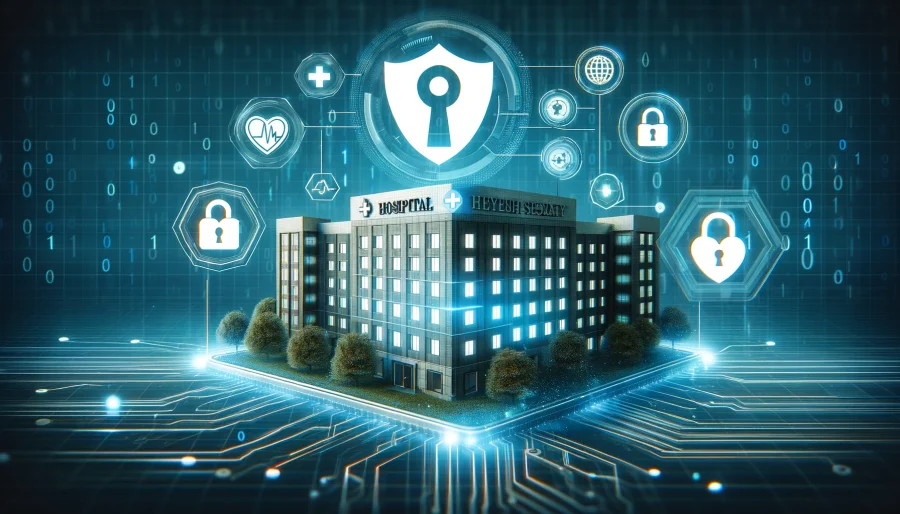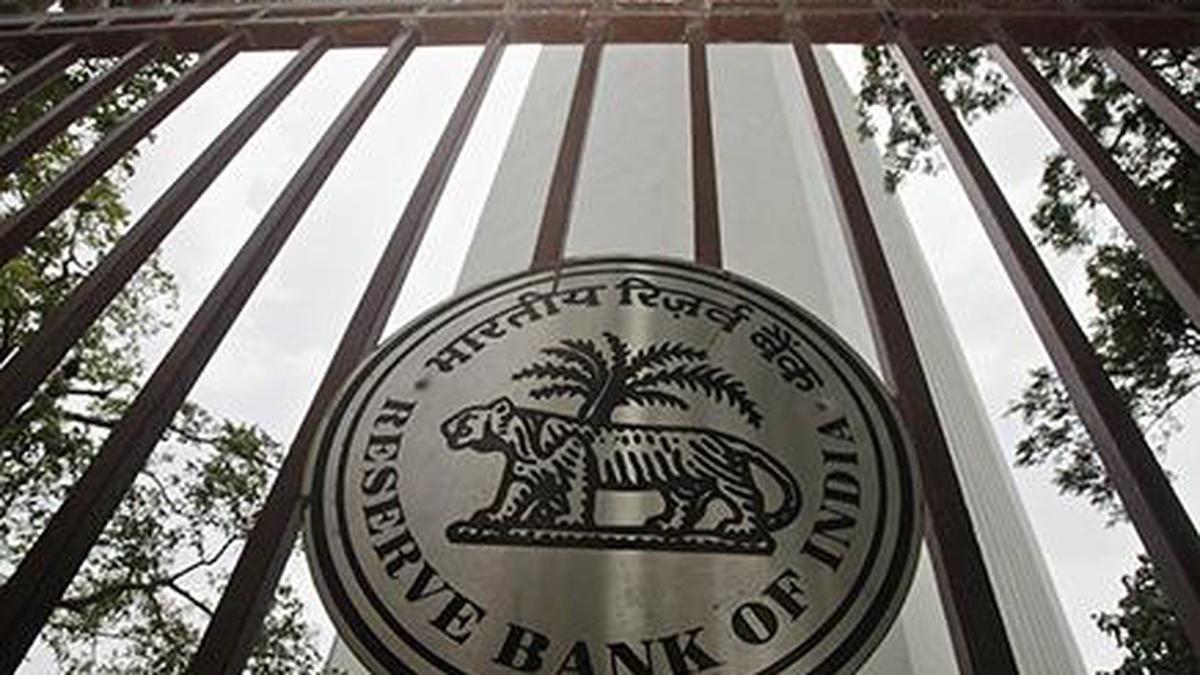What to Look For in Managed Security Operations
Executive Summary
SOC service provider comparison requires comprehensive evaluation frameworks enabling informed MSSP selection, strategic partnership development, and optimal security operations ensuring organizational protection while maintaining cost effectiveness and operational efficiency throughout managed cybersecurity and vendor relationship operations. Organizations evaluating SOC providers face complex decision challenges including capability assessment, service level evaluation, and strategic alignment demanding systematic comparison methodologies, vendor analysis frameworks, and selection criteria throughout SOC procurement and managed security operations. This comprehensive comparison guide provides organizations with proven SOC provider evaluation methodologies, service assessment frameworks, and partnership criteria essential for optimal MSSP selection while maintaining security effectiveness and business value throughout managed cybersecurity transformation and strategic security advancement initiatives.
Understanding SOC Service Provider Categories and Capability Models
Managed Security Service Provider (MSSP) Classifications and Service Tiers
Tier 1 Enterprise MSSPs and Global Service Providers Enterprise-grade MSSPs provide comprehensive security operations including 24×7 monitoring, advanced threat detection, and global incident response capabilities enabling large organizations to access sophisticated security operations and worldwide coverage throughout enterprise managed cybersecurity and global security operations. Tier 1 capabilities include advanced analytics platforms, threat intelligence integration, and multi-region service delivery requiring enterprise provider evaluation and global capability assessment throughout enterprise SOC and international security operations. Organizations must evaluate enterprise capabilities ensuring scale effectiveness while maintaining service quality and global coordination throughout enterprise coordination and managed security management efforts.
Specialized SOC Providers and Industry-Focused Services Industry-specialized MSSPs provide sector-specific security operations including regulatory compliance expertise, industry threat intelligence, and specialized monitoring capabilities enabling organizations to access tailored security operations and domain expertise throughout specialized managed cybersecurity and industry-focused security operations. Specialized capabilities include industry knowledge, regulatory understanding, and sector-specific tools requiring specialized provider evaluation and industry capability assessment throughout specialized SOC and sector security operations. Implementation requires specialized expertise, industry coordination, and domain management ensuring specialized effectiveness while maintaining security quality and regulatory alignment throughout specialized coordination and managed security management initiatives.
Regional SOC Providers and Local Service Delivery Regional MSSPs provide localized security operations including time zone alignment, cultural understanding, and regional compliance expertise enabling organizations to access personalized service delivery and local market knowledge throughout regional managed cybersecurity and localized security operations. Regional capabilities include local presence, language support, and regulatory familiarity requiring regional provider evaluation and local capability assessment throughout regional SOC and localized security operations. Organizations must evaluate regional capabilities ensuring local effectiveness while maintaining service quality and operational coordination throughout regional coordination and managed security management efforts.
Service Delivery Models and Operational Approaches
Pure-Play SOC Services and Dedicated Security Operations Pure-play SOC providers focus exclusively on security operations center services including monitoring, detection, and response capabilities enabling organizations to access specialized expertise and dedicated security focus throughout pure-play managed cybersecurity and dedicated security operations. Pure-play capabilities include specialized tools, dedicated analysts, and focused expertise requiring pure-play provider evaluation and dedicated capability assessment throughout pure-play SOC and focused security operations. Implementation requires dedicated expertise, specialized coordination, and focused management ensuring pure-play effectiveness while maintaining security quality and operational efficiency throughout dedicated coordination and managed security management initiatives.
Integrated Technology and Service Platforms Integrated MSSPs provide combined technology and service delivery including platform provision, monitoring services, and management capabilities enabling organizations to access comprehensive security solutions and unified service delivery throughout integrated managed cybersecurity and platform security operations. Integrated capabilities include technology platforms, service integration, and unified management requiring integrated provider evaluation and platform capability assessment throughout integrated SOC and platform security operations. Organizations must evaluate integrated capabilities ensuring platform effectiveness while maintaining service quality and technology alignment throughout integrated coordination and managed security management efforts.
Hybrid SOC Models and Co-Managed Services Hybrid SOC providers offer co-managed security operations including shared responsibilities, collaborative monitoring, and augmented capabilities enabling organizations to maintain internal control while accessing external expertise throughout hybrid managed cybersecurity and co-managed security operations. Hybrid capabilities include shared operations, collaborative workflows, and augmentation services requiring hybrid provider evaluation and co-management capability assessment throughout hybrid SOC and collaborative security operations. Implementation requires hybrid expertise, collaborative coordination, and shared management ensuring hybrid effectiveness while maintaining security quality and operational control throughout collaborative coordination and managed security management initiatives.
Comprehensive SOC Provider Evaluation Framework
Technical Capability Assessment and Technology Infrastructure
Security Operations Center Infrastructure and Technology Platform
SOC Facility and Physical Infrastructure Evaluation
- Assess SOC facility security including physical access controls, environmental monitoring, and disaster recovery capabilities
- Evaluate infrastructure redundancy including power backup systems, network connectivity, and equipment redundancy
- Review facility certifications including security standards compliance, audit certifications, and regulatory approvals
- Examine geographic distribution including multiple SOC locations, regional coverage, and business continuity planning
- Validate facility tour opportunities including transparency demonstration, infrastructure visibility, and operational observation
Security Technology Stack and Platform Capabilities
- Evaluate SIEM platform sophistication including advanced analytics, machine learning integration, and custom rule development
- Assess security tool portfolio including endpoint protection, network monitoring, and threat intelligence platforms
- Review technology integration capabilities including API connectivity, data correlation, and workflow automation
- Examine threat intelligence integration including commercial feeds, open source intelligence, and custom threat research
- Validate technology innovation including emerging tool adoption, platform evolution, and capability advancement
Monitoring Capabilities and Detection Coverage
- Assess monitoring scope including network traffic analysis, endpoint monitoring, and cloud environment coverage
- Evaluate detection capabilities including signature-based detection, behavioral analytics, and anomaly identification
- Review threat hunting capabilities including proactive investigation, hypothesis-driven analysis, and advanced threat detection
- Examine log management including data retention, search capabilities, and forensic analysis support
- Validate coverage customization including organization-specific monitoring, tailored detection rules, and custom analytics
Analyst Team and Human Resources Assessment
Analyst Qualifications and Expertise Evaluation
- Evaluate analyst certifications including CISSP, GCIH, GCFA, and other relevant security credentials
- Assess experience levels including years of experience, industry background, and specialized expertise areas
- Review training programs including continuous education, certification maintenance, and skill development initiatives
- Examine team structure including tier levels, escalation procedures, and expertise specialization
- Validate language capabilities including communication skills, technical writing ability, and stakeholder interaction
Staffing Model and Resource Allocation
- Assess staffing levels including analyst-to-customer ratios, shift coverage, and resource allocation models
- Evaluate 24×7 coverage including global operations, follow-the-sun models, and continuous monitoring capabilities
- Review escalation procedures including senior analyst availability, expert consultation, and management involvement
- Examine workload management including case assignment, capacity planning, and performance optimization
- Validate retention rates including staff turnover, career development, and employee satisfaction metrics
Service Level Agreements and Performance Standards
Response Time Commitments and Service Level Guarantees
Incident Detection and Initial Response Timelines
- Evaluate detection speed commitments including mean time to detection (MTTD) and alert generation timelines
- Assess initial response guarantees including acknowledgment times, preliminary assessment periods, and escalation triggers
- Review classification timelines including incident severity determination, priority assignment, and resource allocation
- Examine notification procedures including customer communication, stakeholder alerts, and executive briefings
- Validate timeline measurement including SLA tracking, performance reporting, and improvement planning
Investigation and Resolution Service Levels
- Assess investigation depth commitments including analysis scope, evidence collection, and technical examination
- Evaluate resolution timeline guarantees including containment efforts, remediation support, and incident closure
- Review escalation procedures including senior analyst engagement, expert consultation, and management involvement
- Examine documentation standards including incident reports, technical analysis, and recommendation development
- Validate follow-up services including lessons learned sessions, improvement recommendations, and process enhancement
Availability and Uptime Guarantees
- Evaluate service availability commitments including uptime percentages, planned maintenance windows, and service continuity
- Assess disaster recovery capabilities including backup SOC operations, failover procedures, and business continuity planning
- Review communication availability including contact methods, emergency procedures, and after-hours support
- Examine platform availability including SIEM uptime, portal access, and reporting system availability
- Validate penalty structures including SLA violations, service credits, and performance remediation
Reporting and Communication Standards
Incident Reporting and Documentation Quality
- Assess incident report quality including technical accuracy, executive summaries, and actionable recommendations
- Evaluate reporting timeliness including initial notifications, status updates, and final documentation delivery
- Review report customization including audience-specific content, branding options, and format preferences
- Examine trending analysis including pattern identification, threat landscape reporting, and security posture assessment
- Validate communication clarity including technical detail appropriate for audience, clear explanations, and actionable guidance
Regular Reporting and Performance Metrics
- Evaluate regular reporting including monthly summaries, quarterly reviews, and annual assessments
- Assess performance metrics including service level achievement, incident statistics, and improvement tracking
- Review dashboard capabilities including real-time visibility, customizable views, and self-service access
- Examine trend analysis including security posture evolution, threat landscape changes, and risk assessment updates
- Validate stakeholder communication including executive briefings, technical reviews, and strategic planning support
Cost Structure Analysis and Value Assessment
Pricing Models and Cost Comparison Framework
Subscription-Based Pricing and Service Tier Analysis
Base Service Pricing and Included Capabilities
- Evaluate base service costs including fundamental monitoring, basic incident response, and standard reporting
- Assess pricing transparency including clear cost breakdown, scope definition, and service inclusion details
- Review pricing scalability including volume discounts, growth accommodation, and capacity expansion costs
- Examine contract terms including minimum commitments, payment schedules, and pricing escalation clauses
- Validate cost predictability including fixed pricing elements, variable cost factors, and budget planning support
Enhanced Service Tiers and Premium Capabilities
- Assess premium service costs including advanced analytics, threat hunting, and specialized expertise
- Evaluate service tier differentiation including capability differences, resource allocation, and service quality levels
- Review upgrade flexibility including tier migration, service enhancement, and capability expansion options
- Examine value proposition including cost-benefit analysis, capability comparison, and ROI assessment
- Validate service customization including organization-specific requirements, tailored solutions, and bespoke services
Additional Services and Professional Consulting
- Evaluate additional service costs including incident response retainers, forensic investigation, and consulting services
- Assess emergency response pricing including after-hours support, expedited investigation, and crisis management
- Review professional services including security assessments, architecture reviews, and strategic consulting
- Examine training services including security awareness, technical training, and certification support
- Validate integration support including onboarding assistance, technology integration, and operational optimization
Total Cost of Ownership and Value Analysis
Implementation and Onboarding Costs
- Assess setup costs including initial configuration, system integration, and service initialization
- Evaluate onboarding expenses including data migration, tool configuration, and team training
- Review transition costs including current provider termination, knowledge transfer, and operational handover
- Examine customization costs including specific requirements, tailored configurations, and bespoke development
- Validate timeline costs including accelerated deployment, priority implementation, and expedited service start
Hidden Costs and Additional Expenses
- Evaluate potential additional costs including scope creep, service expansion, and requirement changes
- Assess integration expenses including technology connectivity, API development, and system modification
- Review travel costs including on-site visits, emergency response, and consulting engagement
- Examine compliance costs including audit support, regulatory reporting, and certification assistance
- Validate termination costs including data extraction, knowledge transfer, and service conclusion
Industry-Specific SOC Provider Capabilities
Financial Services SOC Requirements and Specialized Capabilities
Banking and Financial Institution Security Operations
Regulatory Compliance and Financial Services Expertise
- Evaluate financial services regulatory knowledge including PCI DSS, SOX, and banking regulations
- Assess compliance monitoring capabilities including regulatory reporting, audit support, and examination preparation
- Review financial crime detection including fraud monitoring, anti-money laundering, and suspicious activity identification
- Examine market data protection including trading information security, insider trading prevention, and market manipulation detection
- Validate regulatory relationship management including authority communication, compliance coordination, and regulatory liaison
Financial Technology and Payment System Monitoring
- Assess payment system monitoring including transaction security, fraud detection, and payment protection
- Evaluate banking application security including core banking monitoring, digital banking protection, and financial service security
- Review high-frequency trading monitoring including algorithmic trading security, market data protection, and trading system integrity
- Examine cryptocurrency and digital asset monitoring including blockchain security, digital wallet protection, and cryptocurrency exchange monitoring
- Validate financial data analytics including risk assessment, threat modeling, and financial security intelligence
Healthcare SOC Providers and Medical Industry Expertise
Medical Institution and Patient Data Protection Operations
Healthcare Compliance and Patient Privacy Expertise
- Evaluate healthcare regulatory knowledge including HIPAA compliance, patient privacy protection, and medical data security
- Assess medical device monitoring including IoT healthcare security, connected device protection, and clinical system monitoring
- Review healthcare breach response including patient notification, regulatory reporting, and medical incident management
- Examine telemedicine security including remote healthcare monitoring, digital health protection, and virtual care security
- Validate clinical research protection including trial data security, pharmaceutical protection, and medical innovation security
Medical Technology and Clinical System Monitoring
- Assess electronic health record monitoring including EHR security, clinical data protection, and medical record integrity
- Evaluate medical device network monitoring including healthcare IoT, clinical equipment security, and patient safety protection
- Review pharmaceutical security including drug development protection, supply chain security, and counterfeit prevention
- Examine hospital infrastructure monitoring including facility security, emergency system protection, and patient care continuity
- Validate medical emergency response including crisis management, patient safety coordination, and healthcare incident response
Manufacturing and Industrial SOC Capabilities
Operational Technology and Industrial Control System Monitoring
Industrial Security and Production Protection Expertise
- Evaluate operational technology expertise including SCADA monitoring, industrial control system security, and production protection
- Assess manufacturing compliance including industrial regulations, safety standards, and environmental compliance
- Review supply chain monitoring including vendor security, logistics protection, and manufacturing partner oversight
- Examine product integrity monitoring including quality assurance, intellectual property protection, and brand security
- Validate industrial incident response including production disruption management, safety coordination, and business continuity
Smart Manufacturing and Industry 4.0 Security
- Assess IoT manufacturing monitoring including connected device security, sensor network protection, and smart factory monitoring
- Evaluate digital twin security including virtual model protection, simulation security, and intellectual property safeguarding
- Review edge computing monitoring including distributed system security, local processing protection, and network edge security
- Examine predictive maintenance security including analytics protection, maintenance system security, and operational intelligence
- Validate manufacturing innovation protection including research and development security, technology protection, and competitive advantage preservation
Quality Assurance and Service Validation
Service Quality Metrics and Performance Measurement
Detection Accuracy and False Positive Management
Threat Detection Quality and Accuracy Assessment
- Evaluate detection accuracy including true positive rates, false positive management, and alert quality
- Assess threat classification accuracy including severity assessment, priority assignment, and risk evaluation
- Review correlation effectiveness including event relationship identification, pattern recognition, and threat clustering
- Examine threat intelligence integration including indicator matching, attribution accuracy, and threat actor identification
- Validate detection improvement including machine learning optimization, rule tuning, and detection enhancement
Alert Management and Noise Reduction
- Assess alert volume management including noise reduction, prioritization effectiveness, and workload optimization
- Evaluate alert correlation including event aggregation, relationship identification, and incident consolidation
- Review false positive reduction including tuning procedures, accuracy improvement, and alert optimization
- Examine alert escalation including severity assessment, priority routing, and resource allocation
- Validate alert quality including actionable intelligence, clear descriptions, and remediation guidance
Customer Satisfaction and Service Excellence
Customer Feedback and Satisfaction Measurement
- Evaluate customer satisfaction scores including service quality ratings, performance assessments, and relationship evaluation
- Assess customer retention rates including contract renewals, service expansion, and long-term partnerships
- Review reference quality including customer testimonials, case studies, and success stories
- Examine complaint resolution including issue handling, service recovery, and relationship repair
- Validate improvement responsiveness including feedback implementation, service enhancement, and customer-driven development
Service Excellence and Continuous Improvement
- Assess service maturity including process optimization, quality management, and operational excellence
- Evaluate innovation adoption including emerging technology integration, capability advancement, and service evolution
- Review best practice implementation including industry standards, framework adoption, and methodology improvement
- Examine knowledge management including expertise capture, lesson sharing, and organizational learning
- Validate continuous improvement including performance enhancement, service optimization, and capability development
Vendor Due Diligence and Risk Assessment
Business Stability and Financial Health Assessment
Company Credentials and Market Position
Financial Stability and Business Viability
- Evaluate financial health including revenue growth, profitability, and business sustainability
- Assess market position including competitive standing, market share, and industry reputation
- Review business history including years of operation, track record, and growth trajectory
- Examine corporate governance including leadership stability, organizational structure, and strategic direction
- Validate business continuity including succession planning, risk management, and operational resilience
Certifications and Industry Recognition
- Assess company certifications including ISO 27001, SOC 2, and industry-specific accreditations
- Evaluate industry recognition including awards, partnerships, and professional memberships
- Review compliance certifications including regulatory approvals, audit certifications, and standard compliance
- Examine technology certifications including vendor partnerships, platform certifications, and technical validations
- Validate quality certifications including service quality standards, performance certifications, and excellence recognition
Security Posture and Risk Management
Provider Security Assessment and Risk Evaluation
- Evaluate provider security posture including internal controls, security measures, and risk management
- Assess data protection capabilities including encryption, access controls, and privacy safeguards
- Review incident response capabilities including breach procedures, containment measures, and recovery planning
- Examine business continuity including disaster recovery, backup procedures, and service availability
- Validate security compliance including regulatory adherence, audit results, and security certifications
Vendor Risk Management and Mitigation
- Assess vendor risk factors including dependency risks, concentration risks, and operational vulnerabilities
- Evaluate risk mitigation strategies including contingency planning, alternative arrangements, and risk reduction measures
- Review insurance coverage including professional liability, cyber insurance, and business protection
- Examine legal protection including contract terms, liability limitations, and dispute resolution
- Validate exit planning including termination procedures, data return, and service transition
Expert Guidance and Professional SOC Procurement Support
Specialized SOC Selection Consulting and Procurement Expertise
MSSP Evaluation Strategy and Selection Framework Development
SOC Provider Assessment and Comparison Methodology Organizations require specialized SOC procurement expertise ensuring optimal MSSP selection, comprehensive provider evaluation, and strategic partnership development throughout SOC vendor selection and managed security procurement operations. SOC consulting includes provider assessment, comparison methodology, and selection strategy requiring specialized SOC expertise and procurement coordination throughout MSSP evaluation and vendor selection operations. Organizations must engage SOC expertise ensuring provider optimization while maintaining selection quality and strategic alignment throughout SOC coordination and vendor management efforts.
Service Level Negotiation and Contract Optimization SOC provider selection requires comprehensive contract development including service level agreements, performance standards, and strategic partnership terms ensuring optimal vendor relationships and service delivery throughout SOC contracting and relationship management operations. Contract services include SLA negotiation, performance management, and agreement optimization requiring specialized contract expertise and SOC coordination throughout vendor contracting and service operations. Implementation requires contract knowledge, SOC expertise, and negotiation coordination ensuring contract optimization while maintaining service quality and vendor alignment throughout contract coordination and SOC management efforts.
Implementation Planning and Transition Management SOC provider implementation requires comprehensive transition planning including service migration, knowledge transfer, and operational handover ensuring successful MSSP deployment and service continuity throughout SOC implementation and transition management operations. Implementation services include transition planning, migration management, and operational coordination requiring specialized implementation expertise and SOC coordination throughout SOC transition and service operations. Organizations must engage implementation expertise ensuring transition success while maintaining operational continuity and service effectiveness throughout implementation coordination and SOC management initiatives.
Quality Assurance and SOC Performance Management
Independent SOC Provider Assessment and Validation Professional SOC provider validation requires independent assessment ensuring objective evaluation, comprehensive validation, and optimal selection throughout SOC vendor selection and quality assurance operations. SOC assessment includes provider validation, service verification, and performance evaluation requiring specialized SOC expertise and assessment coordination throughout SOC evaluation and vendor operations. Organizations must implement validation procedures ensuring provider optimization while maintaining service quality and strategic alignment throughout validation coordination and SOC management efforts.
Ongoing SOC Performance Monitoring and Optimization SOC provider relationships require continuous monitoring ensuring ongoing performance, service quality, and relationship optimization throughout evolving security requirements and vendor management. SOC monitoring includes performance tracking, service assessment, and relationship enhancement requiring specialized SOC expertise and monitoring coordination throughout SOC management and performance operations. Implementation demands SOC expertise, monitoring procedures, and optimization coordination ensuring continuous improvement while maintaining service quality and vendor effectiveness throughout monitoring coordination and SOC management efforts.
Conclusion
SOC service provider comparison demands comprehensive evaluation frameworks, systematic assessment methodologies, and strategic vendor management ensuring optimal MSSP selection while maintaining service quality and cost effectiveness throughout managed cybersecurity and vendor relationship initiatives. Success requires procurement expertise, technical assessment capabilities, and strategic coordination addressing complex provider evaluation challenges while supporting security objectives and business value throughout SOC procurement and managed security advancement efforts.
Effective SOC provider selection provides immediate security operations capability while establishing foundation for long-term security excellence, operational efficiency, and competitive advantage supporting organizational success and stakeholder confidence throughout cybersecurity evolution and vendor relationship development. Investment in comprehensive SOC provider evaluation capabilities enables service optimization while ensuring quality delivery and cost effectiveness in complex cybersecurity environments requiring sophisticated vendor management and strategic procurement coordination throughout selection and advancement operations.
Organizations must view SOC provider selection as strategic security enabler rather than procurement transaction, leveraging vendor relationships to build security capabilities, operational excellence, and competitive advantages while ensuring security advancement and vendor optimization throughout cybersecurity transformation. Professional SOC provider selection accelerates security capability building while ensuring service outcomes and sustainable vendor relationships providing pathway to security excellence and competitive positioning in complex cybersecurity environments.
The comprehensive SOC provider comparison framework provides organizations with proven methodology for MSSP evaluation while building procurement capabilities and competitive advantages essential for success in managed cybersecurity environments requiring sophisticated vendor preparation and strategic investment. Selection effectiveness depends on procurement focus, technical expertise, and continuous improvement ensuring vendor optimization throughout vendor lifecycle requiring sophisticated understanding and strategic investment in vendor capabilities.
Strategic SOC provider selection transforms security requirement into competitive advantage through vendor excellence, service effectiveness, and operational optimization supporting organizational growth and industry leadership in dynamic cybersecurity environment requiring continuous adaptation and strategic investment in vendor capabilities and procurement excellence essential for sustained security success and stakeholder value creation throughout vendor advancement and managed security optimization initiatives.














